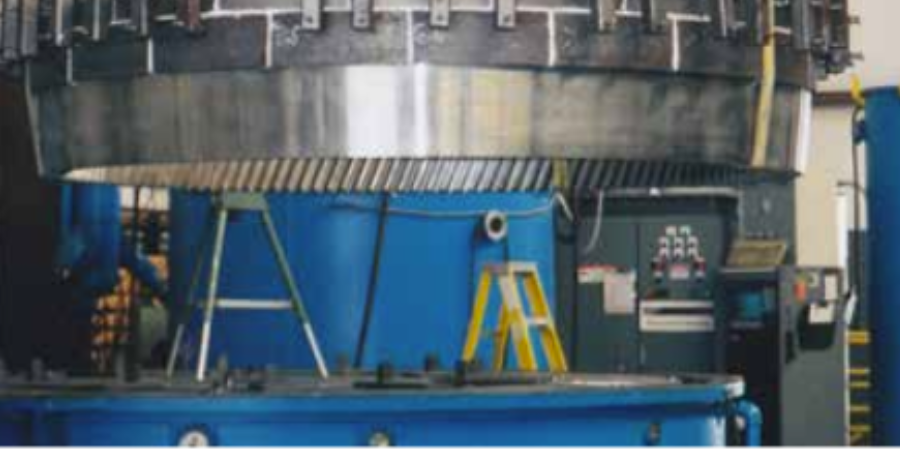Ion Nitriding of Titanium Alloys for Gear Applications
![]() Source: Thermal Processing for Gear Solutions
Source: Thermal Processing for Gear Solutions
The advantages of ion nitriding heat treatments in many low-alloy steels and titanium alloy gears used in high-performance applications include resisting wear and fatigue.
Nitriding produces high hardness and compressive stresses in many low-alloy steels used for gears. It is a nearly distortion-free process, which allows for the treating of finished components, thus minimizing costs. The complex nature of the stresses at the contact area of rotating gears leads to contact fatigue and sliding friction. Nitriding is superior to other surface engineering techniques in resisting wear at gear f lanks. When a high-strength alloy steel suitable for nitriding is used, a nitrided surface layer withstands high contact Herztian stress (contact stress) at gear flanks better than a deeper carburized layer in many instances.
Ion Nitriding of Titanium Alloys for Gear Applications Read More »






